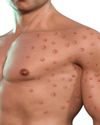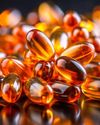
While they are frequently associated with diseases and infections there is a hidden side to these tiny creatures that is nothing short of awe inspiring. Bacteria can be likened to blacksmiths as they possess the remarkable ability to shape and work with metals a process known as biomineralization. This explores the fascinating world of bacteria as blacksmiths delving into their pivotal role in metallurgy, environmental remediation and scientific advancement.
The Art of Biomineralization
Biomineralization is a process by which living organisms, including bacteria, orchestrate the formation and deposition of minerals. Bacteria have evolved to manipulate various metals and metalloids transforming them into structures that are either beneficial to themselves or crucial for broader ecosystem functions. Some key examples of bacterial biomineralization include: Iron Bacteria and Ferric Oxide Formation: Iron bacteria are renowned for their ability to metabolize iron and produce ferric oxide (rust) as a metabolic byproduct. This process not only aids the bacteria in energy production but also contributes to the formation of iron rich deposits in natural environments.
Manganese Oxide Formation: Manganese oxidizing bacteria facilitate the precipitation of manganese oxides a process that plays a significant role in the removal of heavy metals and the cycling of manganese in aquatic ecosystems. Sulfur Bacteria and Pyrite Formation: Certain sulfur bacteria can participate in the formation of pyrite also known as "fool's gold." This has implications for both geochemical processes and ore formation.
Uranium Biomineralization: Bacteria have been found to immobilize uranium through the biomineralization of uranyl phosphate compounds offering potential solutions for the remediation of uranium contaminated environments.
Environmental Remediation
This story is from the November - December 2023 edition of Scientific India.
Start your 7-day Magzter GOLD free trial to access thousands of curated premium stories, and 9,000+ magazines and newspapers.
Already a subscriber ? Sign In
This story is from the November - December 2023 edition of Scientific India.
Start your 7-day Magzter GOLD free trial to access thousands of curated premium stories, and 9,000+ magazines and newspapers.
Already a subscriber? Sign In

Building world's 1st pyramid
In a preprint study published this summer, researchers proposed that ancient Egyptians built the world's first pyramid the 4,700-year-old Step Pyramid of Djoser, which sits on Egypt's Saqqara plateau using a \"modern hydraulic system\" powered by a long-gone branch of the Nile River.

Climate change arms the world, ovarian cancer pulls the trigger.It's time we disarm them both
Climate change, driven by human activities, leads to environmental changes such as rising temperatures, altered weather patterns, and increased pollution.

Climate Change Added 18 mph to Hurricane Wind Speeds over Past 5 Years
High ocean temperatures caused by global warming boosted maximum intensities for most storms between 2019 and 2023, as well as for every 2024 hurricane.

How Indian Vulture Decline Led to 500,000 Deaths in 5 Years
Once a common sight across India, vultures were abundant scavengers, often seen circling landfills in search of carcasses.

Understanding Monkeypox: Insights and Implications
Monkeypox, a viral zoonotic disease, has gained significant attention in recent years due to its re-emergence and sporadic outbreaks globally.

AI predicts that most of the world will see temperatures rise to 3°C much faster than previously expected
Three leading climate scientists have combined insights from 10 global climate models and, with the help of artificial intelligence (AI), conclude that regional warming thresholds are likely to be reached faster than previously estimated.

Infrared Radiation: A New Player In Mosquito Host-Seeking
The sound of mosquitoes is all around us when the sun sets and the air gets warm and sweltering.

Fish Oil May Benefit to Cure Alzheimer's, disorder: new findings
The benefits of fish and fish oil consumption are well-known in medical science as fish is considered a precious food resource that provides sufficient nutrition to humans.

A new class of antivirals could help prevent future pandemics
The arrival of Paxlovid in December 2021 marked another turning point in the COVID-19 pandemic an effective antiviral that has since successfully treated millions.

Turning carbon emissions into methane fuel
Chemists have developed a novel way to capture and convert carbon dioxide into methane, suggesting that future gas emissions could be converted into an alternative fuel using electricity from renewable sources. Carbon dioxide (CO2) is a greenhouse gas that accounts for a large part of Earth's warming climate, and is produced by power plants, factories and various forms of transportation.